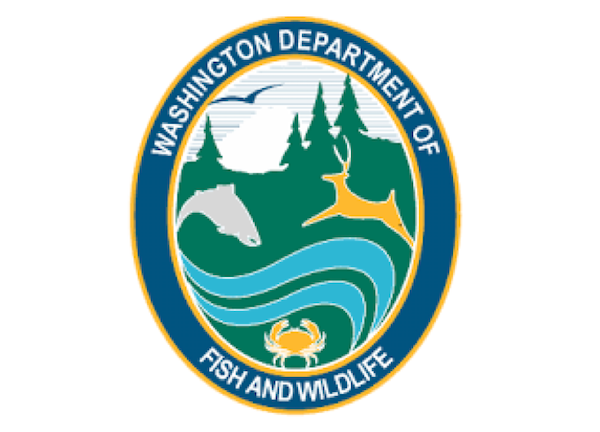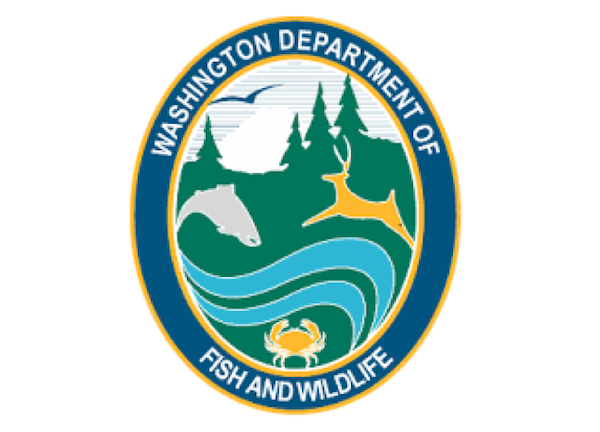Fish Report for 11-11-2021
Next round of razor clam digs get go-ahead on Washington coast

by WA Department of Fish & Wildlife Staff
11-11-2021
Website
OLYMPIA – This fall’s strong razor clam season continues as shellfish managers with the Washington Department of Fish and Wildlife (WDFW) have confirmed the latest round of digs for Washington’s coastal beaches, beginning Tuesday, Nov. 16.
Marine toxin results from the Washington Department of Health showed that the clams continue to be safe to eat, and WDFW has approved the next nine dig days in mid-November.
“It’s been windy and rainy out on the coast the last couple of weeks, but we’re still seeing lots of people coming out and getting their limit of razor clams,” said Dan Ayres, coastal shellfish manager with WDFW. “Before you hit the beach, remember to bring the appropriate gear and plenty of warm, waterproof clothing as we move deeper into winter.”
Ayres noted that clam diggers should double-check that their destination is open on the day they intend to dig, as not all beaches are open for every dig.
WDFW also encourages following local and state health and safety guidelines to help prevent the spread of COVID in Washington communities.
The following digs were approved, along with the low tides and beaches:
- Nov. 16, Tuesday, 4:50 P.M.; 0.5 feet; Long Beach, Twin Harbors, Copalis
- Nov. 17, Wednesday, 5:28 P.M.; 0.1 feet; Long Beach, Twin Harbors, Mocrocks
- Nov. 18, Thursday, 6:03 P.M.; -0.2 feet; Long Beach, Twin Harbors, Copalis
- Nov. 19, Friday, 6:37 P.M.; -0.3 feet; Long Beach, Twin Harbors, Mocrocks
- Nov. 20, Saturday, 7:10 P.M.; -0.3 feet; Long Beach, Twin Harbors, Copalis
- Nov. 21, Sunday, 7:44 P.M.; -0.2 feet; Long Beach, Twin Harbors, Mocrocks
- Nov. 22, Monday, 8:21 P.M.; 0.0 feet; Long Beach, Twin Harbors, Copalis
- Nov. 23, Tuesday, 9:00 PM +0.2 feet; Long Beach, Twin Harbors, Mocrocks
- Nov. 24, Wednesday, 9:43 P.M.; +0.5 feet; Long Beach, Twin Harbors, Copalis
Most successful digging occurs between one and two hours before the listed time of low tide. No digging is allowed before noon during digs when low tide occurs in the afternoon or evening.
All open beaches (Long Beach, Twin Harbors, Mocrocks, and Copalis) have increased limits through the end of 2021, with diggers allowed to keep 20 clams instead of the usual 15. Each digger’s clams must be kept in a separate container, and all diggers must keep the first 20 clams they dig, regardless of size or condition.
WDFW has tentatively scheduled additional digging dates later in 2021 – details can be found at wdfw.wa.gov/fishing/shellfishing-regulations/razor-clams. All tentative dates are dependent on final marine toxin testing, which usually occurs about a week or less prior to each set of openings. WDFW will announce additional dates in 2022 in mid-December after reviewing harvest levels and projections.
All diggers age 15 or older must have an applicable fishing license to harvest razor clams on any beach.
Licenses, ranging from a three-day razor clam license to an annual combination fishing license or a Fish Washington license, are available from WDFW’s licensing website at fishhunt.dfw.wa.gov/login, and from hundreds of license vendors around the state. WDFW recommends buying your license before visiting coastal beach communities for this razor clam season.
To learn more about razor clam abundance, population densities at various beaches, and how seasons are set, visit wdfw.wa.gov/fishing/shellfishing-regulations/razor-clams#management.
The Washington Department of Fish and Wildlife works to preserve, protect, and perpetuate fish, wildlife and ecosystems while providing sustainable fish, wildlife, and recreational and commercial opportunities.
More Reports
Adult coho daily limit increased on the Lewis River
Lewis River
11-11-2021
Action: Increases the adult coho portion of the salmon daily limit to six hatchery fish. Species affected: Hatchery coho salmon. Effective dates...... Read More
WA Department of Fish & Wildlife Reports
for Thursday, November 4th, 2021
: Fish Black Friday for big rainbow trout
Sol Duc River: Wild Chinook must be released on the Quillayute, Sol Duc, Dickey, Bogachiel, and Calawah rivers

Website Hosting and Design provided by TECK.net